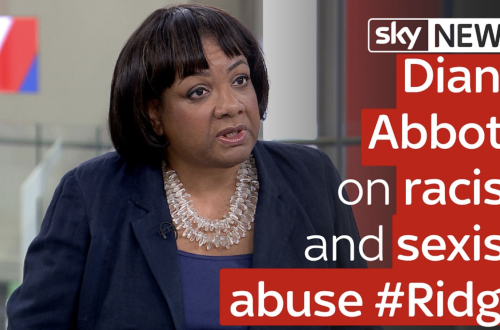In keeping with Gene’s RIP Reaganism series (see here and here), I submit my own reflection on the rise of Trump in the shadow of Reagan. Originally posted to Ordinary Times last February.
Looking for Mythological Reagan
Ronald Reagan’s legacy looms large over American conservatives. Everyone wants to be the new Ronald Reagan and Republican candidates can’t stop declaring his name with bated breath. Regrettably for conservatives, the visage of Reagan they broadcast has little to do with the actual president but epitomizes a caricature forged in Republican media circles and punditry for the last 20 years. This Mythological Reagan is evoked as the tough, principled, provocative conservative who spoke truth in an uncompromising fashion. A man hated by liberals and leftists while he celebrated America’s greatness at home and abroad; a leader who would deliver America to be brighter future.
This Mythological Reagan has been invoked continuously for the last two decades, but it always acted as a theoretical model of emulation rather than an actual blueprint. Donald Trump, unlike any candidate before him, has successfully embodied the myth of Reagan, and that is what frightens party insiders. The Reagan caricature they crafted has now been given life and it appears to be irresistible.
One Step Away from Destruction
As Trump picks up a number of conservative governor endorsements this week, it appears that some in the party’s establishments have accepted the Donald’s rise to the nomination as inevitable. While factions of the Republican base are still fighting to stop Trump from seizing the nomination, their familiar rhetorical tactics are beginning to fall on deaf ears. Writing for National Review, Curt Anderson argued:
This memo is for people who care about replacing Justice Scalia with a constitutional conservative, people who care about stopping abortion and defending unborn babies, people who care about rebuilding America’s defenses, people who want to protect the right to keep and bear arms, people who want to stop this mindless slide toward a culture of dependency on government, people who oppose the increasing secularization of American culture, and people who think free speech and religious liberty are of vital importance.
This inflated fear that the next election would see the end of all conservatives hold dear has been regurgitated so often that Anderson’s statements read almost verbatim to those made by countless Republican media figures since 1992. Eventually, said pundits would remind us that what we really need is a new Ronald Reagan to stand against this liberal onslaught. Nile Gardiner in the Telegraph echoed an all too familiar sentiment:
Ultimately, President Obama’s legacy to America will be the decline of a great superpower, weighed down by crushing debts and massive entitlement programs, and facing an emboldened set of adversaries, from Moscow to Tehran to Pyongyang. The damage inflicted by the Obama administration will ultimately be worse than the harm caused by the presidency of Jimmy Carter due to the scale of the long-term economic crisis now facing America.
Can this be reversed? Yes, but it will require a Herculean effort by a US president on the level of a Ronald Reagan, as well as a United States Congress that is willing to implement the free market measures and public cuts that will be needed to revive America’s economy as well as confront the budget deficit, and restore Washington’s standing abroad. The United States needs strong leadership based upon its founding principles of limited government and individual liberty, and driven by a sense of American greatness and exceptionalism. Nothing short of a political revolution of the kind that swept both sides of the Atlantic in 1979 and 1980 is needed to secure America’s future and ensure it is able to lead the free world for the next century.
The Mythological Reagan
For the last two decades, conservative media has lionized Ronald Reagan as the model for Republicans to emulate. Every Republican debate revolved around candidates proclaiming their affinity for the late president and making the case that they would further his philosophical goals and defend his conservative legacy. Right wing radio hosts made Reagan into a demigod of sorts for the Republican movement; he became a figure of indubitable integrity, unrelenting strength, and incontestable ideological purity. Through this revisionist lens, a caricature of Reagan was crafted to be mimicked and revered by the conservative base.
Unfortunately for Republicans, the memory of Reagan they constructed in the last 20 years has little to do with the actual man he is patterned after. This fictitious Reagan may be hard to pin down as it has taken on different forms to meet the needs of a politician or pundit on any and all issues, but a few key characteristics of fictitious Reagan are clear. Paul Kengor’s 11 Principles of a Reagan Conservative expounds on “what his emulators today might take to heart.” According to Kengor, said principles include:
Freedom
This freedom principle was not just an American principle; for Reagan, it was a universal principle. Freedom was not the exclusive domain of Americans. Reagan said that freedom was one of the deepest and noblest aspirations of the human spirit.” All humans aspire to freedom. And when governments permit people to express their aspiration for freedom, especially in the economic sphere, freedom works.
Aspirational, surely, but not entirely representative of Reagan’s record. Reagan’s long history with Latin American dictators is well documented, as was his policy towards South Africa and radical Islamists in Afghanistan. Alex Seitz-Wald, writing for Think Progress, states:
Reagan vetoed a comprehensive anti-Apartheid act which placed sanctions on South Africa and cut off all American trade with the country. Reagan’s veto was overridden by the Republican-controlled Senate. Reagan responded by saying “I deeply regret that Congress has seen fit to override my veto,” saying that the law “will not solve the serious problems that plague that country.”
…
Reagan fought a proxy war with the Soviet Union by training, arming, equipping, and funding Islamist mujahidin fighters in Afghanistan. Reagan funneled billions of dollars, along with top-secret intelligence and sophisticated weaponry to these fighters through the Pakistani intelligence service.
On Taxes
Reagan came to see the counterproductive nature of these excessive taxes. He thought the top rates so punitive they discouraged work, including his own….In speeches in the 1950s and 1960s, he blasted the progressive income tax as “right out of” Karl Marx’s Communist Manifesto. Indeed, the Manifesto calls for “a heavy progressive or graduated income tax.
The reality was far different.
Reagan was a serial tax raiser. As governor of California, Reagan “signed into lawthe largest tax increase in the history of any state up till then.” Meanwhile, state spending nearly doubled. As president, Reagan “raised taxes in seven of his eight years in office,” including four times in just two years. As former GOP Senator Alan Simpson, who called Reagan “a dear friend,” told NPR, “Ronald Reagan raised taxes 11 times in his administration — I was there.” “Reagan was never afraid to raise taxes,” said historian Douglas Brinkley, who edited Reagan’s memoir. Reagan the anti-tax zealot is “false mythology,” Brinkley said.
On Small Government
Kengor:
Reagan felt that by January 1981, when he was inaugurated, the federal government had subsumed far too many roles and duties that should have been left to the private sector or to local and states governments…When Reagan invoked the mantra of “freedom,” it was about freedom not only from Soviet/communist tyranny abroad, but also from out-of-control big government at home.
Seitz-Wald again refutes these claims.
Reagan grew the size of the federal government tremendously. Reagan promised “to move boldly, decisively, and quickly to control the runaway growth of federal spending,” but federal spending “ballooned” under Reagan. He bailed out Social Security in 1983 after attempting to privatize it, and set up a progressive taxation system to keep it funded into the future. He promised to cut government agencies like the Department of Energy and Education but ended up adding one of the largest — the Department of Veterans’ Affairs, which today has a budget of nearly $90 billion and close to 300,000 employees. He also hiked defense spending by over $100 billion a year to a level not seen since the height of the Vietnam war.
The list of contradictions between Real Reagan and Mythological Reagan are extensive, but the central theme to the myth of his presidency is tone and consistency. The aforementioned principles outlined by Kengor could be encapsulated in a single moment: Reagan’s 1987 speech in West Berlin. This speech, and its central line (“Tear down this wall!”), embodies the myth of Reagan more than any other specific moment of his presidency. Conservatives argue that this willingness to be “tough” and speak the truth above all other political considerations was what “defeated” the Soviet Union (the reality is far more complicated). The myth of Reagan overcoming his adversaries by sheer will and certainty has left the Republican Party with an idealistic understanding of the past and the political process.
Trump as the Embodiment of the Reagan Myth
Conservatives in opposition to Trump are quick to point out the significant differencesbetween the candidate and Reagan, but these pundits have failed to recognize the elements of emulation being celebrated in the Donald’s meteoric rise. Reagan’s appeal as a figure of admiration is in the emotional response individuals have to his presidency. The real success of Reagan’s rise was in making Americans feel proud of their country after two decades of upheaval. The simplified narrative of an uncompromising truth-teller is made the central characteristic of Mythological Reagan as the tangible deal making and political compromise of his presidency is whitewashed from memory.
So when Trump proclaims that he will make America great again, calls for confrontations with foreign powers and belittles his opponents as weak and unprincipled, he comfortably dons the characteristics Republicans have celebrated in Ronald Reagan for the last 20 years. He is the living incarnation of their standard-bearer’s fabled principles, unrestrained and unbending.
The Mythological Reagan, much like the golem of lore, was molded to aid its creator. Coincidently, the forces unleashed by its crafting were uncontrollable. The Republican masses seem to no longer care what their leaders say about Trump; they rightfully see in him the very characteristics ferociously celebrated by the same figures for decades.


